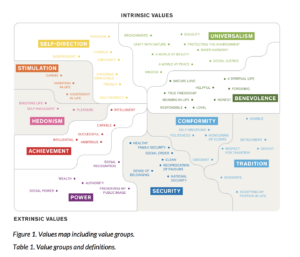How should we talk about COVID-19?
Posted on 31 Mar 2020 Categories: Blog, Climate crisis, Coronavirus, Cross-posts
by Uplift
These are uncertain and challenging times for people trying to push for progressive, people-first solutions to the crisis presented to us by COVID-19. Being deliberate in the way in which we communicate is essential. As progressives – or people who care about people – we want to use our words to activate values in our audience that leads them to be more compassionate, kind, generous and responsible during this time of crisis.
The following guide has been compiled from existing research from groups like New Economy Organisers in the U.K and the Race – Class Narrative research team led by Anat Shenker Osario in the U.S. We have also opened up the collaborative document to dozens of progressive organisations who have pooled their collective knowledge.
Values
Often on the left, we assume that people have set and defined political leanings. We often talk of ‘traditionalists’ or ‘middle Ireland’ as if people self-identify into those groups and therefore only ever act out of a particular set of fixed values. That couldn’t be further from the truth. Most research shows that instead, people actually hold a range of conflicting values at the same time – and that these values get activated when we hear and digest messages from the outside world. [1]

This gives us huge power as progressive communicators to move people toward benevolent and universal values and this time of crisis. Instead of strengthening values of security and tradition – we can move people into a new mode of thinking and feeling and transform our public response to this time of crisis as a result.
Words, Metaphors, and Frames
Humans tend to understand the world through metaphors. When someone is rude to us we might say they ‘gave us the cold shoulder’ demonstrating that we use a physical sensation in order to understand the abstract concept of rudeness.
We also attempt to understand complex issues through ‘Frames’, essentially meaning that we choose to cut through the noise and focus through a frame on one particular aspect of an issue. It’s easy to spot the media doing this, especially if they have a racist agenda. For example, Fox News – who cater to a mostly white audience framed this piece of news very differently than Fox News Latino – using the frames of ‘money’ and ‘illegals’ to activate the values of security and power within their audience.

Replace and Embrace New Language
With all of this in mind, as progressives, we can be clear that the values we want to activate and benevolence and universalism. This gives us a clear guide of what we should say, and what we shouldn’t when it comes to speaking about COVID-19 and the many challenges it presents to us.
An easy way to keep our messaging on track is by using this ‘Embrace and Replace’ guideline we’ve put together based on the research and collaboration over the last two weeks.
Here’s the quick guide Uplift staff and members are using. Feel free to use it too!
Embrace |
Replace |
|
Solidarity No matter who we are or where we come from, we are all in this together. If each one of us makes a change to protect ourselves, our families, our neighbours and communities, we will protect each other.
|
Panic
This crisis is going to get much worse and people are being selfish. In a few weeks, we could descend into mayhem and anarchy. |
| Pro Public
The way to protect our economy is to protect each other and protect the people among us who are extra vulnerable. Right now, our Government needs to ensure that people have the protections they need to get through this. That means income support, a stronger health service and an end to evictions. |
Pro Individual
We should cut taxes in order to make sure the workforce has the extra income they need to look after themselves and their families. |
| Pro Community
People in [insert country] have risen to the huge challenge facing our communities. It shows that at our core, we understand that to survive we must look after one another. That’s why we can’t let those who put money first set the rules. Now is the time for us to hold powerful corporations to account, to stand with the people and small businesses still working to keep our country moving, and to make sure that everyone who has lost their job or can’t make rent is looked after properly. |
Pro Economy
This is going to have a massive effect on our economy and probably cause a long recession. We should be watching the stock markets closely and offering corporate stimulus packages and tax breaks to big businesses and employers. |
| People First
People in Ireland/Austria/Germany etc.
|
Nation First
Irish/Austrian/German people etc. |
| Protecting our Neighbours
Coronavirus is a reminder that we are all part of one global community. It’s clear that in order to keep ourselves safe, we need to look after our neighbours too. That means being responsible about avoiding unnecessary travel and physical interaction. Remember, the Canadian Prime Minister’s wife is thought to have caught the virus on a trip to London. |
Closing the Borders
We need to close the borders and stop immigration in order to stop the spread of this virus.
|
| Long Term Solutions
Now more than ever, this virus has shown us that we are dependent on each other and whether we’re Black or white, from the Traveller community or a person seeking asylum, we know it’s time to pull together to demand what we all need to stay well. Only by standing united can we ensure our own wellbeing through this outbreak and rewrite the rules to ensure better health for us all for generations to come.
|
Short Term Solutions While this is happening we need emergency measures. We are in unprecedented times so it requires unprecedented measures. For now, we need an end to evictions and deportations until we get back to normal. |
| We can transform our systems
If this crisis has shown us anything, it’s that the systems put in place to govern our lives can be quickly changed for our collective wellbeing. We can deliver new hospital beds and we can hire enough people to care for us when we’re unwell, we can stop landlords from evicting tenants, we can tell banks that they’re not the priority. It’s only when a system breaks that you can truly see its flaws, and now we can fix what is broken when politicians have the will to do so. |
We will get back to normal This crisis will end and things will go back to normal. The economy will recover but it’s going to be hard. |
| Physical Distancing
Right now we need to keep physical distance from others so that we can protect ourselves, each other, and give healthcare workers a chance. But we can still connect, check-in on neighbours, and raise our voices together to demand change now and in the future. |
Social Distancing We need to keep social distancing to stop the spread of the virus and protect frontline health staff. |
You can access the full messaging collaboration document here: https://docs.google.com/document/d/1_YDedIFhmwILZXWRCXkt1fjHXjll3xQxJfyRGJAhiVI/edit
Email emily@uplift.ie if you have any further questions or ideas.
NOTES:
Values Wheel and Research on Values Activation: Building Bridges
This was originally posted on the Uplift website on 20th March 2020.
Read our coverage of the coronavirus pandemic here.
Posted on 31 Mar 2020 Categories: Blog, Climate crisis, Coronavirus, Cross-posts

